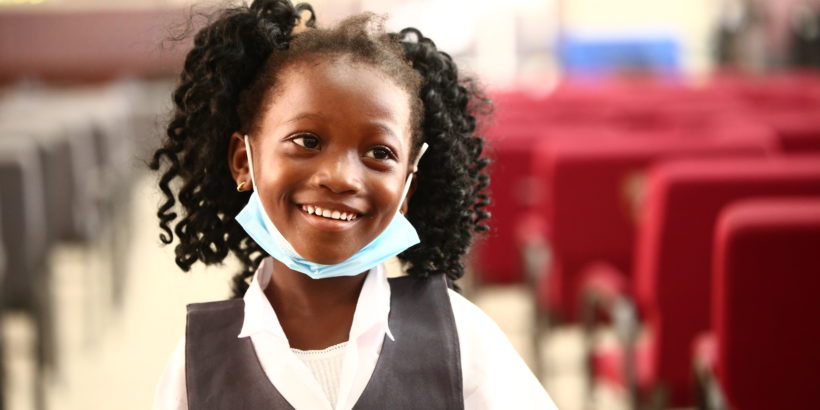Liberia is a country accustomed to “firsts.” We were the first African Republic to fight for its own independence, and in 2005, Liberia elected Africa’s first female president, Ellen Johnson Sirleaf. Our current president, George Weah, is the first African former professional football player to become head of state. Today, Liberia becomes the first country in Africa to introduce typhoid conjugate vaccine (TCV). We will begin with a weeklong campaign to reach more than 1.9 million children aged 9 months to younger than 15 years old with TCV. After the campaign concludes, we will integrate TCV into the routine immunization program for all children at 9 months old.
For more than forty years, the Government of Liberia has worked to create a robust expanded program on immunization, working to ensure that our nation’s children survive and thrive to reach their utmost potential. During this time, our country has introduced more than a dozen vaccines to protect children and adolescents against preventable diseases. From polio and measles, to pneumonia, yellow fever, and now typhoid, I am proud of our focus and determination to keep our children healthy.
With this TCV campaign, and the subsequent integration of TCV into routine immunization, we have yet again expanded the arsenal of tools we have to ensure our children can flourish. In Liberia, typhoid is endemic. Estimates show that there were more than 5,800 typhoid cases in 2019, and nearly 60 percent were in children younger than 15 years old. The benefits of introducing TCV in our country are vast. Making TCV available to all children means improved health, fewer hospital visits, retained household income, and greater school productivity. It also means less pressure on our health services and resources, and a greater chance for all children, families, and communities to reach their full potential. And finally, it means that here in Liberia, we are doing our part in the global effort to stop the spread of drug-resistant typhoid strains. Drug-resistant typhoid is an increasingly dangerous threat across the world. These strains are more difficult and costly to treat with antibiotics. TCVs have tremendous potential to reduce disease burden, which in turn can slow the emergence and spread of drug-resistant typhoid strains.
Liberia’s location on the coast of West Africa makes us prone to fluctuations in the environment as well. Extreme weather, mostly flooding and droughts, can impact water systems and water availability in our communities. When this happens, our rural counties suffer the impact of the extremes, often with increased cases of water-borne diseases, including typhoid. As climate change continues to impact our country, TCV again offers protection for our children and families who are at risk of floods and droughts during extreme weather events.
Through civil war and the most recent Ebola outbreak in 2015, our health system has been broken and worn down, only to be built back stronger and more resilient. Irrespective of our individual cultures, religions, and backgrounds in Liberia, our collective goal for our children is the same: that each and every one of them survive and thrive to achieve their dreams. With TCV introduction and protection against typhoid, we continue to make good on our promise.
The past year has been full of challenges with the COVID-19 pandemic, but I am proud of our strength and perseverance to plan for TCV introduction, and to be able to protect our children from typhoid. Our children are the future of Liberia; keeping them safe from preventable diseases is an investment in them, our communities, and the future of our country.
Cover photo: Rokie smiles after receiving TCV in Monrovia as part of Liberia’s TCV introduction campaign. Photo: PATH/Nurudeen Sanni



